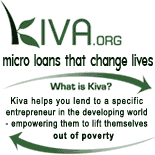LinkBlog
'Managing Holiday Stress' a LifeCare® guide (PDF)
Generalized Anxiety Disorder - Patient treatment manual (pdf)
Understanding post-traumatic stress disorder
Children of smokers have up to five times higher levels of a nicotine toxin

Image: California Department of Health Services
Children who have at least one parent who smokes have 5.5 times higher levels of cotinine, a byproduct of nicotine, in their urine, according to a University of Leicester led study published online in Archives of Disease in Childhood.
Having a mother that smokes was found to have the biggest independent effect on cotinine in the urine - quadrupling it. Having a smoking father doubled the amount of cotinine, one of chemicals produced when the body breaks down nicotine from inhaled smoke to get rid of it. Sleeping with parents and lower temperature rooms were also associated with increased amounts of cotinine.
Cotinine was measured in 100 urine samples taken from infants aged 12 weeks. Seventy one of the babies had at least one parent that smoked and the parents of the other 33 were non-smokers.
The authors say: 'Babies affected by smoke tend to come from poorer homes, which may have smaller rooms and inadequate heating.
'Higher cotinine levels in colder times of year may be a reflection of the other key factors which influence exposure to passive smoking, such as poorer ventilation or a greater tendency for parents to smoke indoors in winter.'
Sleeping with a parent is a know risk factor for cot death and the authors suggest that one reason for this could be inhalation of, or closeness to clothing or other objects contaminated with, smoke particles during sleep.
Nearly 40% of under-fives are believed to be exposed to tobacco smoke at home, and smoke may be responsible for up to 6,000 deaths per year in the US alone, in young children.
'Babies and children are routinely exposed to cigarette smoking by their carers in their homes, without the legislative protection available to adults in public places.' say the researchers.
But they acknowledge that there are practical difficulties in preventing smoking in private homes because it relies on parents or carers being educated about the harmful effects of passive smoking on their children and then acting on that knowledge.
Joseph DV, Jackson JA, Westaway JA, Taub NA, Petersen SA, Wailoo MP.
Effect of parental smoking on cotinine levels in newborns
Arch. Dis. Child. Fetal Neonatal Ed.;doi:10.1136/adc.2006.108506
[Abstract]
















